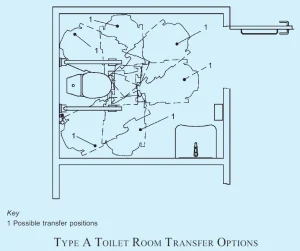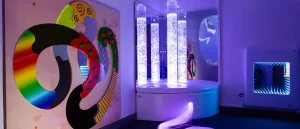If you have decided on the installation of a new floor for your home or office, you will need to consider how it will be affected by moisture. While you would certainly hope that your new floor will be impervious to all spills, some types of floor are more resistant than others. Vinyl flooring, one type of material commonly used for new flooring, is one type that tends to hold up well to moisture.
Sheet vinyl flooring is simply vinyl flooring that comes flat, continuous, multi-layered sheets. In other words, it is a floating floor. Sheet vinyl flooring is also completely impermeable to liquid, unlike linoleum, which has a glued mat that retains liquid. Linoleum is often seen in areas that are prone to high levels of moisture. Vinyl floors, as with most other types of flooring, are also waterproof, but they do not show the staining of liquids as easily as sheet vinyl floors do.
With the additional benefit of being impervious to moisture, sheet vinyl flooring has many benefits. Because it does not have a wear layer, it is far less likely to dent, or show signs of wear like linoleum. Vinyl may eventually show wear and tear from foot traffic, however the design of these floors is such that this is not often an issue. Vinyl is also great because it has a variety of designs and colors to choose from. This means that each customer can get a floor with something unique and unusual that still looks extremely sharp and appealing.
If you are concerned about the presence of toxic chemicals in the home or office, you should be aware of some common vinyl flooring sheet design ingredients. A major component of this type of flooring, polyvinyl esters, or PVE, is made from ethylene gas and petroleum products. The use of ethylene gas, which is used for soundproofing, may contain some toxic chemicals. These chemicals are formed when ethylene gas is converted into liquid form. If these chemicals are present in the finished product, these fumes are inhaled by consumers when walking across your floor.
In addition to exposure to toxic chemicals, vinyl flooring, when installed, can sometimes become stained. Because vinyl does not have a wear layer, the stains that form over time can make the floor look unsightly and even affect its functionality. If vinyl is laid in an area prone to spills, or if it is laminated, the damage done from spilled liquids can easily seep into the subfloor of the room where it was laid. For this reason, it is essential that sheet vinyl flooring be installed in a space with care.
Vinyl flooring can be an excellent choice for flooring, if you want a durable product that will outlast your home’s usual floor maintenance efforts. However, if you are concerned about the long-term health effects of vinyl flooring, or if you are concerned about the healthfulness of the product itself, polyvinyl chloride is a better alternative. Its durability and health-genic qualities make it an excellent choice for bathrooms, where the floor must be kept squeaky clean and dry at all times. And for a floor that can be installed over a shower or bathtub, the strength and durability of sheet vinyl flooring make it a good choice for a place in your home where you want something strong yet slip-resistant and durable.







More Stories
Designing Floors for Neurodiverse and Sensory-Sensitive Individuals
Technical Considerations and Product Guides for Flooring in High-Moisture and Extreme Climate Environments
Flooring for Multi-Generational Households: The Ultimate Guide to Harmony Underfoot